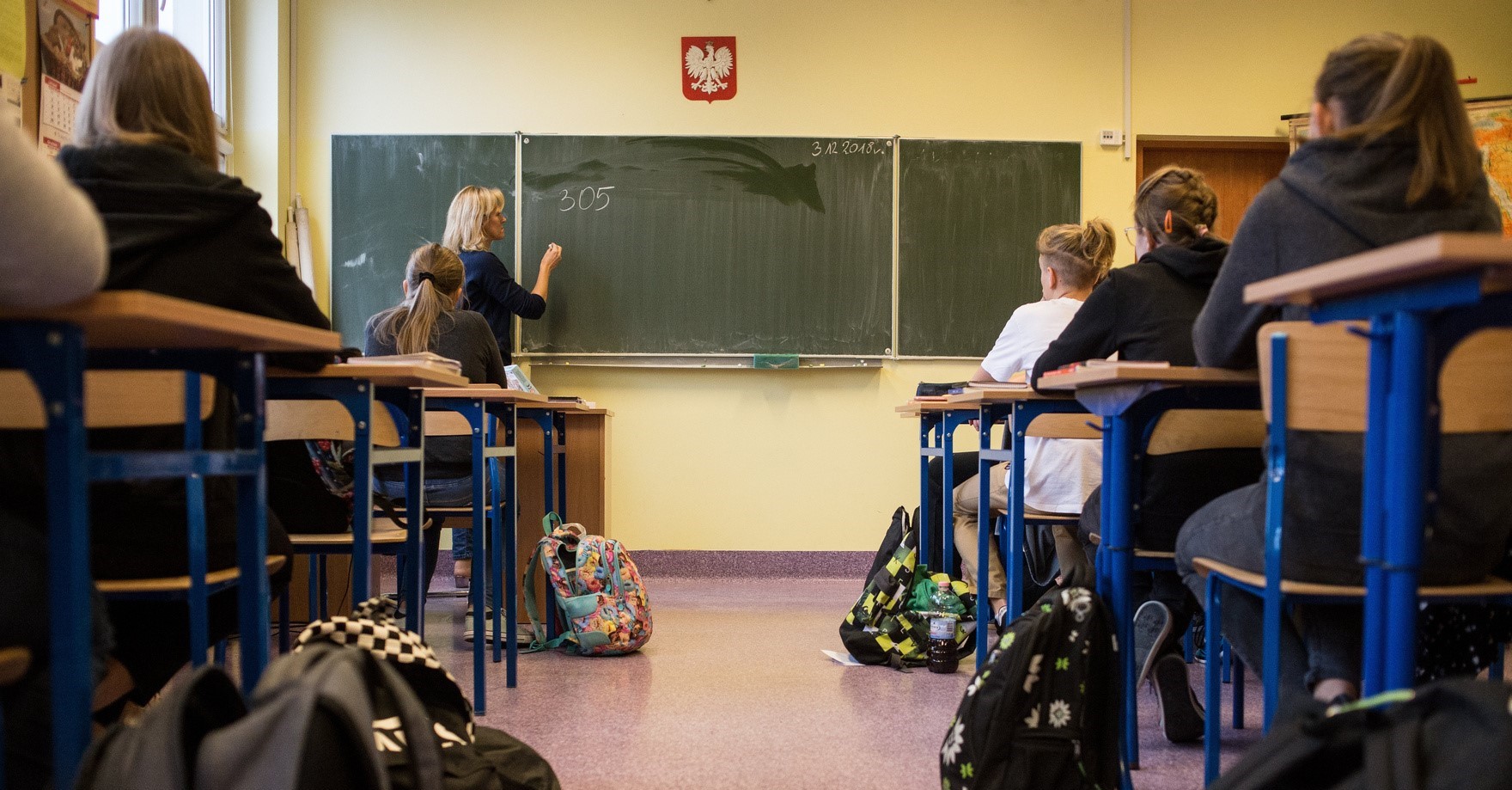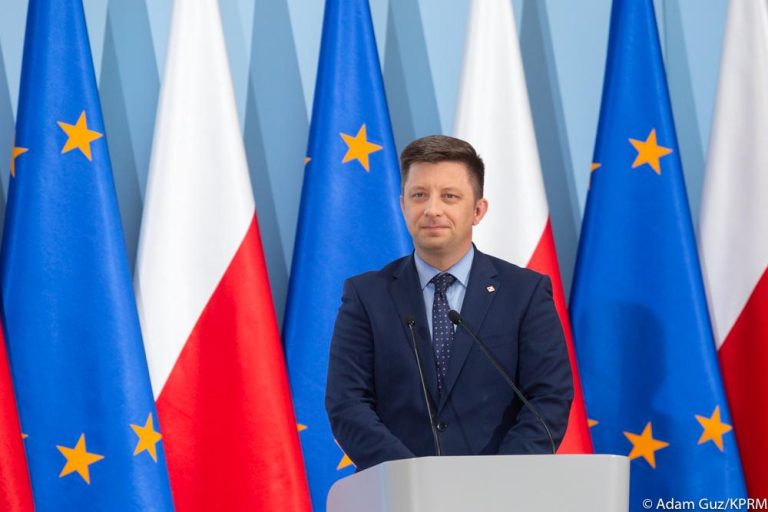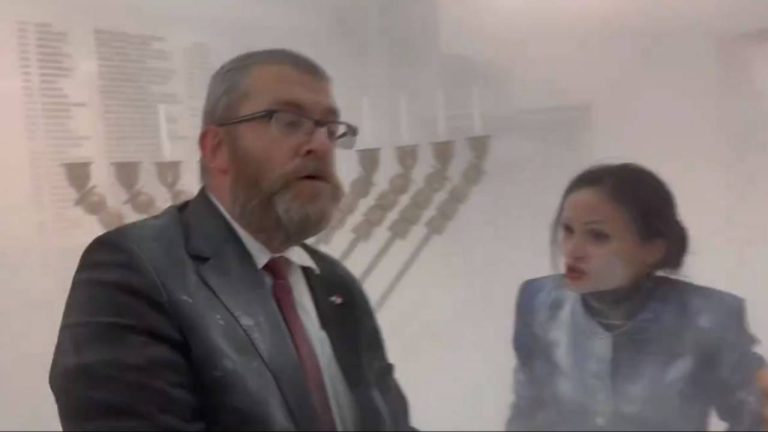Poland introduces “slimmed-down” school curriculum cutting content by 20%

Poland’s government has introduced a new, “slimmed-down” curriculum for the new school year. Its content has been reduced by one fifth, which the education ministry says will give teachers and students “more time for calmer and in-depth” learning.
Plans to reduce the size of the curriculum by 20% were outlined in February, with the education ministry subsequently holding consultations with experts, teachers and parents over the plans.
However, Gazeta Wyborcza, a leading daily newspaper, notes that many NGOs and education activists have complained that there was in practice little heed paid to their comments.
On Friday last week, the ministry announced that its head, Barbara Nowacka, had now signed the relevant regulations amending the curriculum for the next school year, which begins on 1 September. The changes will affect all grades from four upwards.
❗️ Ministra Edukacji @barbaraanowacka podpisała rozporządzenia zmieniające podstawy programowe dla 18 przedmiotów w szkołach podstawowych i ponadpodstawowych. 🎓
👉 20% mniej treści nauczania, skupienie na praktycznych umiejętnościach, większe wykorzystanie cyfrowych narzędzi i… pic.twitter.com/aNHtlUVxbb
— Ministerstwo Edukacji Narodowej (@MEN_GOVPL) June 28, 2024
The ministry confirmed that the content of the curriculum has been reduced by around 20% overall and said that the material removed was “mainly content that is redundant at a given educational stage and impossible or very difficult to implement in practice”.
“More attention was paid to developing practical skills instead of theoretical or encyclopedic knowledge and to using digital tools and educational resources available on the Internet in the teaching and learning process,” added the ministry.
Much media attention has focused on changes to the compulsory reading list for children, with some classics of Polish literature, such as The Deluge by Henryk Sienkiewicz and The Peasants by Henryk Reymont, now only to be read in fragments rather than as a whole.
Poland has ranked first among EU countries – alongside Finland – in an international test of reading comprehension among school pupils.
It also has one of the largest gender disparities, with girls performing much more strongly than boys https://t.co/JHUh94BA0t
— Notes from Poland 🇵🇱 (@notesfrompoland) May 16, 2023
Explaining the planned cuts last month, Nowacka told broadcaster Radio Zet that the previous reading list “was gigantic” and included some classic books that were so “thick” and filled with “archaic language” that students “reject them in their entirety”.
Speaking to Gazeta Wyborcza, deputy education minister Katarzyna Lubnauer said that allowing teachers to choose just fragments of books such as The Deluge and The Peasants would let them “show the characteristics of the language of a given novel” while also making it more “likely that the student will read them”.
Other changes to the reading list include the addition of a short story, Professor Andrews Goes to Warsaw, by Polish Nobel Prize Winner Olga Tokarczuk – a figure often criticised by PiS – and the removal of poet Jarosław Rymkiewicz, who was previously added to the list under the PiS government.
Nowa lista lektur przewiduje „aż” trzynaście książek przez cały kurs liceum? Fiu fiu… Kształcimy naród erudytów, nie ma co…
— Agnieszka Gozdyra (@AGozdyra) June 29, 2024
Gazeta Wyborcza also notes that the new curriculum continues to refer to the Volhynia massacres – in which Ukrainian nationalists murdered tens of thousands of ethnic Poles during the Second World War – as a “genocide”.
A team of experts appointed by the education ministry had proposed instead using the term “Polish-Ukrainian conflict” due to the disputed classification of the massacres and because there are a growing number of Ukrainian children in Polish schools with a different perspective on the events.
However, Lubnauer says that “the ministry listened to the voice of the public” on this issue, which “said that for us Poles, the memory of the genocide in Volhynia is important”. She added that “the Volhynia genocide was a fact”.
Polish-Ukrainian reconciliation requires the WW2 massacre of Poles by Ukrainians to be referred to as a genocide, says Poland’s most senior bishop.
He today signed a joint declaration on the massacres with the head of the Ukrainian Greek Catholic Church https://t.co/tB9o7kib0k
— Notes from Poland 🇵🇱 (@notesfrompoland) July 7, 2023
Other changes to the curriculum include the remove of a controversial new subject, history and the present, introduced under the former national-conservative Law and Justice (PiS) government. It has been replaced with civic education.
Meanwhile, so-called education for family life classes will be replaced by health education, which will be compulsory for all pupils.
The government’s changes to the curriculum, and especially the large cuts, have faced criticism from the PiS, now the main opposition party, and also some experts.
Piotr Müller, a former spokesman for the PiS government, accused the new government of “taking a razor” to the curriculum, which he said was being cut “without a coherent concept”, reports the Polish Press Agency (PAP).
Rok szkolny 2024/25. Burza wokół podstawy programowej i ograniczenia prac domowych#PAPinformacjehttps://t.co/CL0LTI8Fwt
— PAP (@PAPinformacje) June 21, 2024
Sławomir Jacek Żurek, a professor of literature and the Catholic University of Lublin, likewise told broadcaster Polskie Radio that the curriculum has been “cut very roughly to reduce the amount of content” but without “even a trace of any [overall] concept”.
“The core curriculum really needs to be slimmed down, but not like this,” added Żurek, though he did praise the ministry for removing older texts from the reading list that are “too difficult for students to understand due to their subject matter or archaic language”.
Meanwhile, an online petition launched by Polish language teachers and signed by over 4,600 people accuses the government of failing to listen to them and other experts. It calls for even greater cuts to the compulsory reading list and for “more trust” in teachers to choose texts to read with their pupils.
The proportion of Poles who have read at least one book in the last year has risen to 43%, its highest level since 2010.
The most-read author for the fifth year running was crime writer Remigiusz Mróz, followed by Stephen King and Henryk Sienkiewicz https://t.co/aaWmnLexNj
— Notes from Poland 🇵🇱 (@notesfrompoland) April 6, 2024
Notes from Poland is run by a small editorial team and published by an independent, non-profit foundation that is funded through donations from our readers. We cannot do what we do without your support.
Main image credit: Jakub Orzechowski / Agencja Wyborcza.pl

Daniel Tilles is editor-in-chief of Notes from Poland. He has written on Polish affairs for a wide range of publications, including Foreign Policy, POLITICO Europe, EUobserver and Dziennik Gazeta Prawna.






